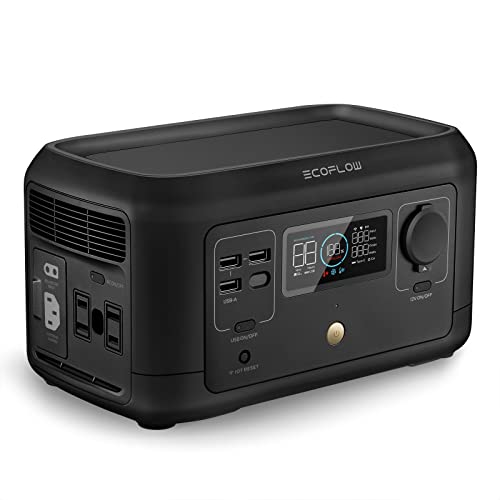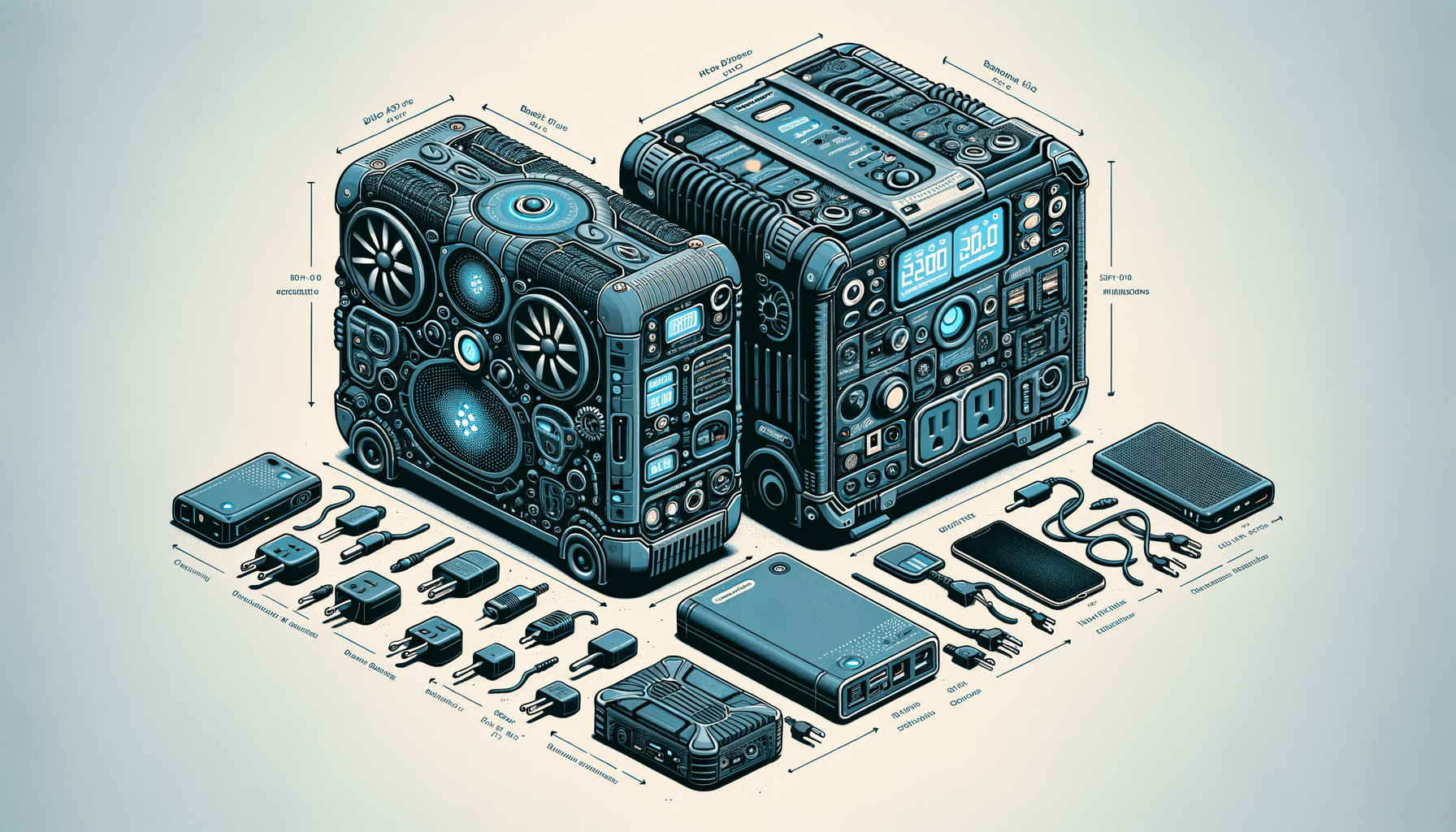Looking to invest in a portable power station? Whether you’re an outdoor enthusiast or seeking a reliable backup power source, the EcoFlow River Mini and Renogy 500 offer impressive specs that merit a closer look. Let’s dive into a detailed technical comparison to help you decide which suits your needs best.
Portability and Design
When adventure calls, you want a power station that’s as mobile as you are. The EcoFlow River Mini weights just 6.3lbs and touts a compact form factor, making it extremely portable and easy to carry around. On the other hand, the Renogy 500 is more of a heavyweight at 16.71 lbs, but with substantial power to back it up.
Power and Performance
Performance is key in portable power stations. The EcoFlow River Mini has a capacity of 210Wh, while the Renogy 500 doubles down with a robust 495Wh capacity. Moreover, Renogy’s offering impresses with an 800W inverter, powering sensitive electronics without a hiccup, and a surge capability of a whopping 1600W.
Charging and Compatibility
Getting back to full power quickly is crucial. The EcoFlow River Mini boasts a rapid AC charge time of 1.5 hours, while the Renogy 500 sports the ‘iTurbo’ technology which promises a speedy 1-hour AC fast recharge. It’s also worth noting that both are solar-ready, leveraging green energy to keep you powered up.
Connectivity and Outputs
The River Mini allows you to charge up to 8 devices simultaneously, fitting for most consumer electronics. Its wireless version also adds a USB-C port and wireless charging pad for added convenience. The Renogy 500 matches that device capacity, offering a rich array of outputs including fast-charging USB ports and multiple AC outlets.
Advanced Features
Both power stations pack advanced features, with the EcoFlow River Mini offering a fast charge to 80% in an hour and a Battery Management System for device protection. The Renogy 500 extends its superiority with remote monitoring, iStack function for power expansion, and integrated strip lighting to add ambiance and utility to your setup.
EcoFlow River Mini vs. Renogy 500 – The Spec Table
| Feature | EcoFlow River Mini | Renogy 500 |
|---|---|---|
| Wh Capacity | 210Wh | 495Wh |
| Net Weight | ~6.3lbs | 16.71 lbs |
| Dimensions | 9.8 x 5.5 x 5.2 inches | 12.76 x 8.19 x 9.43 inch |
| AC Input | 100-120V~ 50/60Hz, 6A Max | Not Specified |
| DC Input | 11-39V 100W, 8A Max | Not Specified |
| AC Output | 300W total (600W surge) | 800W (1600W surge) |
| Solar Input | Supports up to 100W | Compatible with e.flex 220W |
| Charge Times (AC) | 1.5 hours | 1 hour with iTurbo |
| Cycle Life | 80%+ after 500 cycles | Not Specified |
| Operating Temperatures | -20°C to 45°C | Not Specified |
| Output Variety | 8 devices simultaneously | 8 devices simultaneously |


Both the EcoFlow River Mini and the Renogy 500 stand out in their own right. The choice essentially boils down to how much power you need, the importance of portability for you, and the advanced features that matter most to your context. Make sure to consider the specifics of your adventures or your backup power needs before making your selection.


Leave a Reply